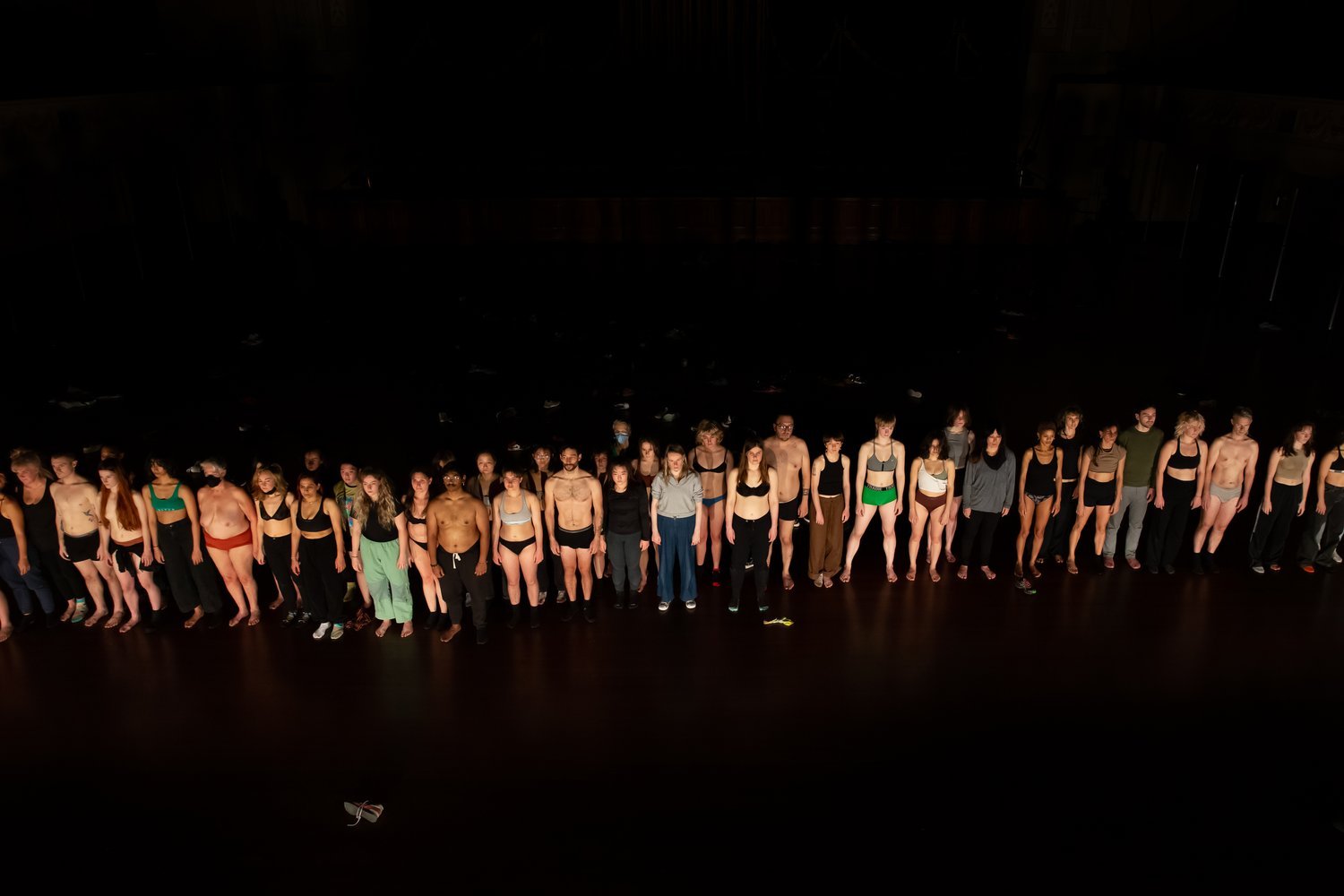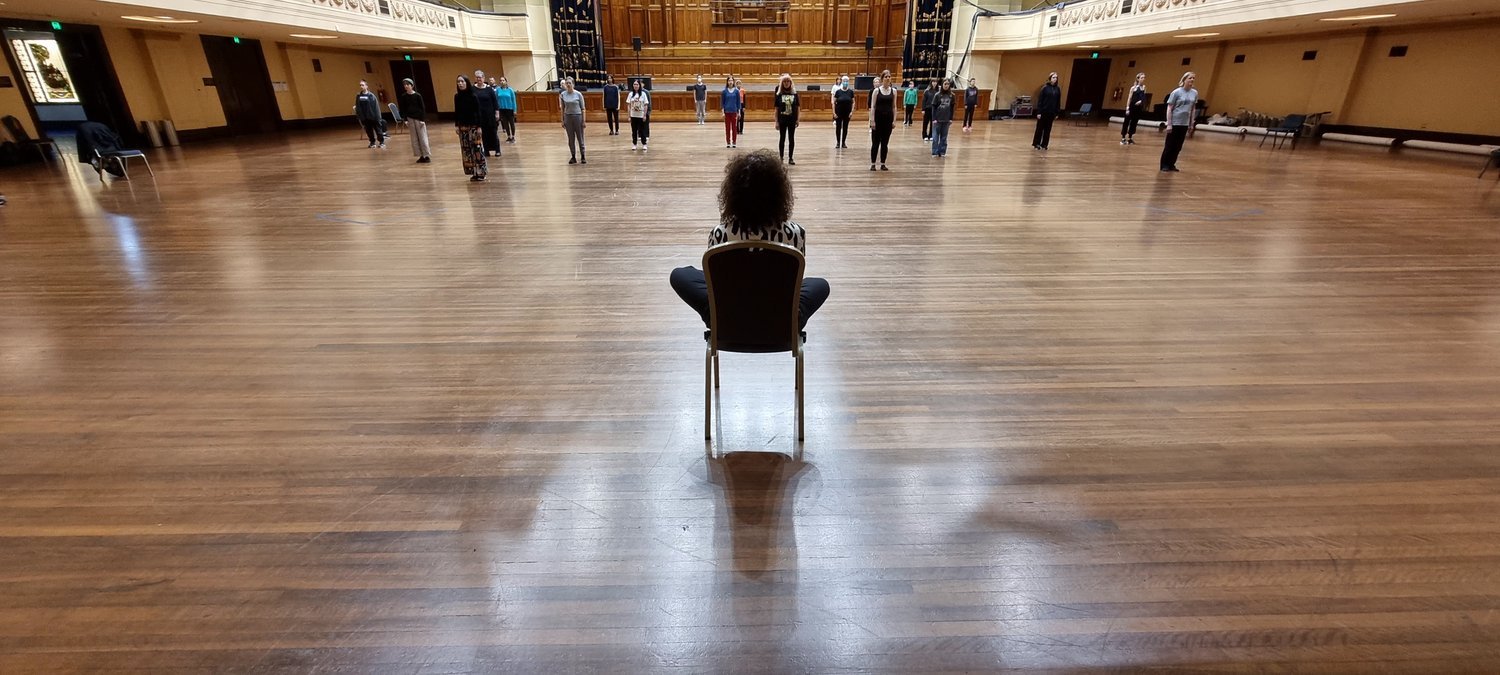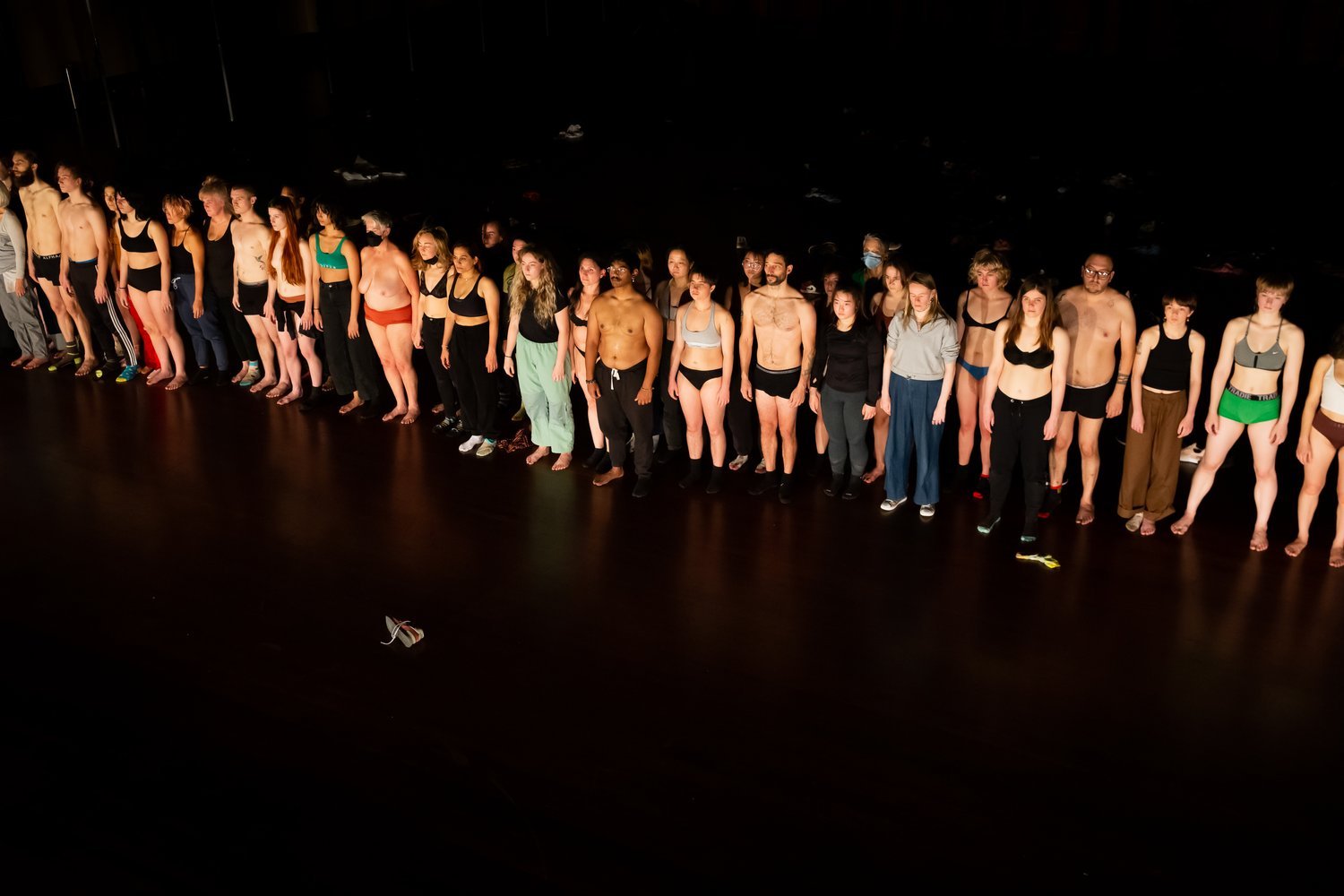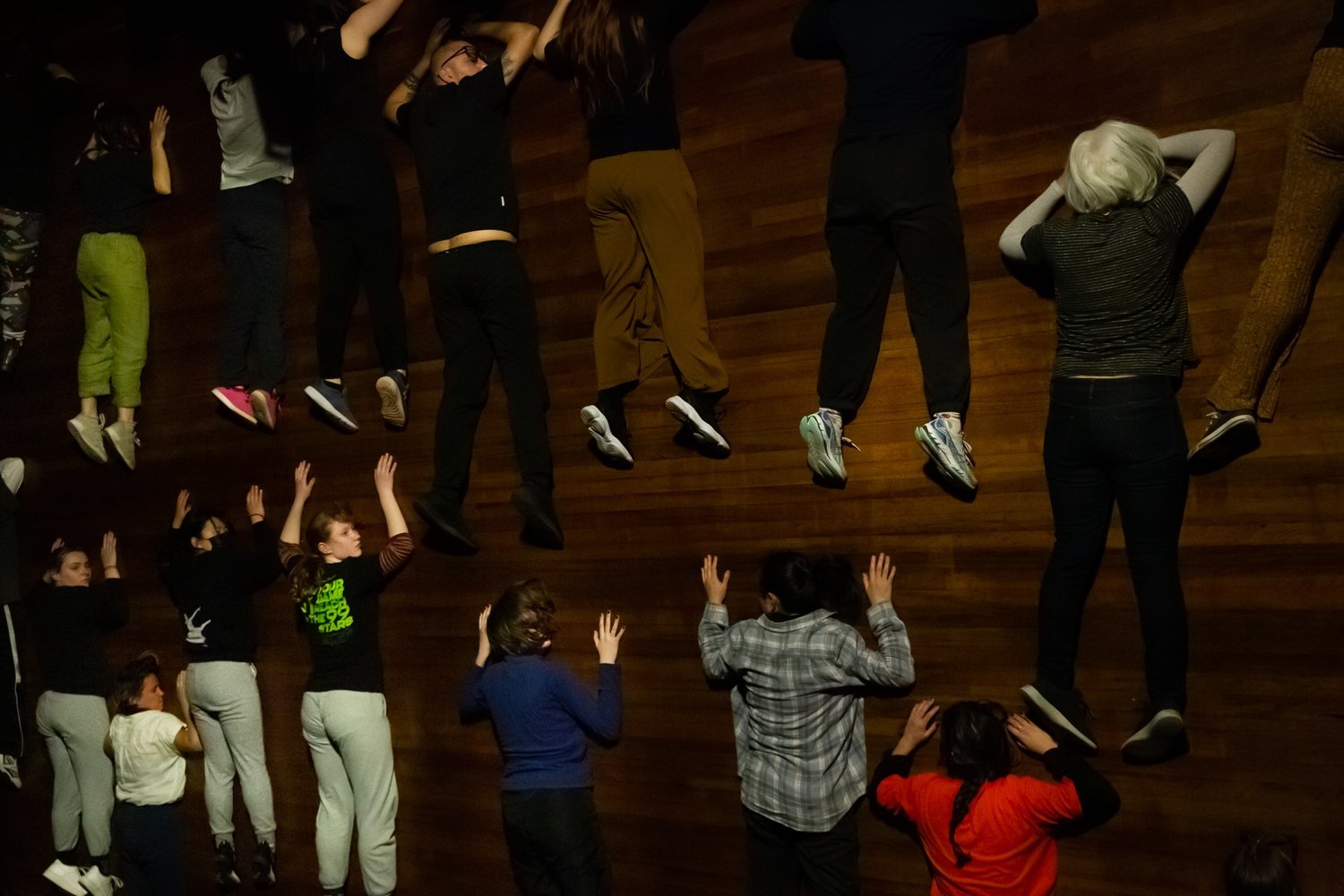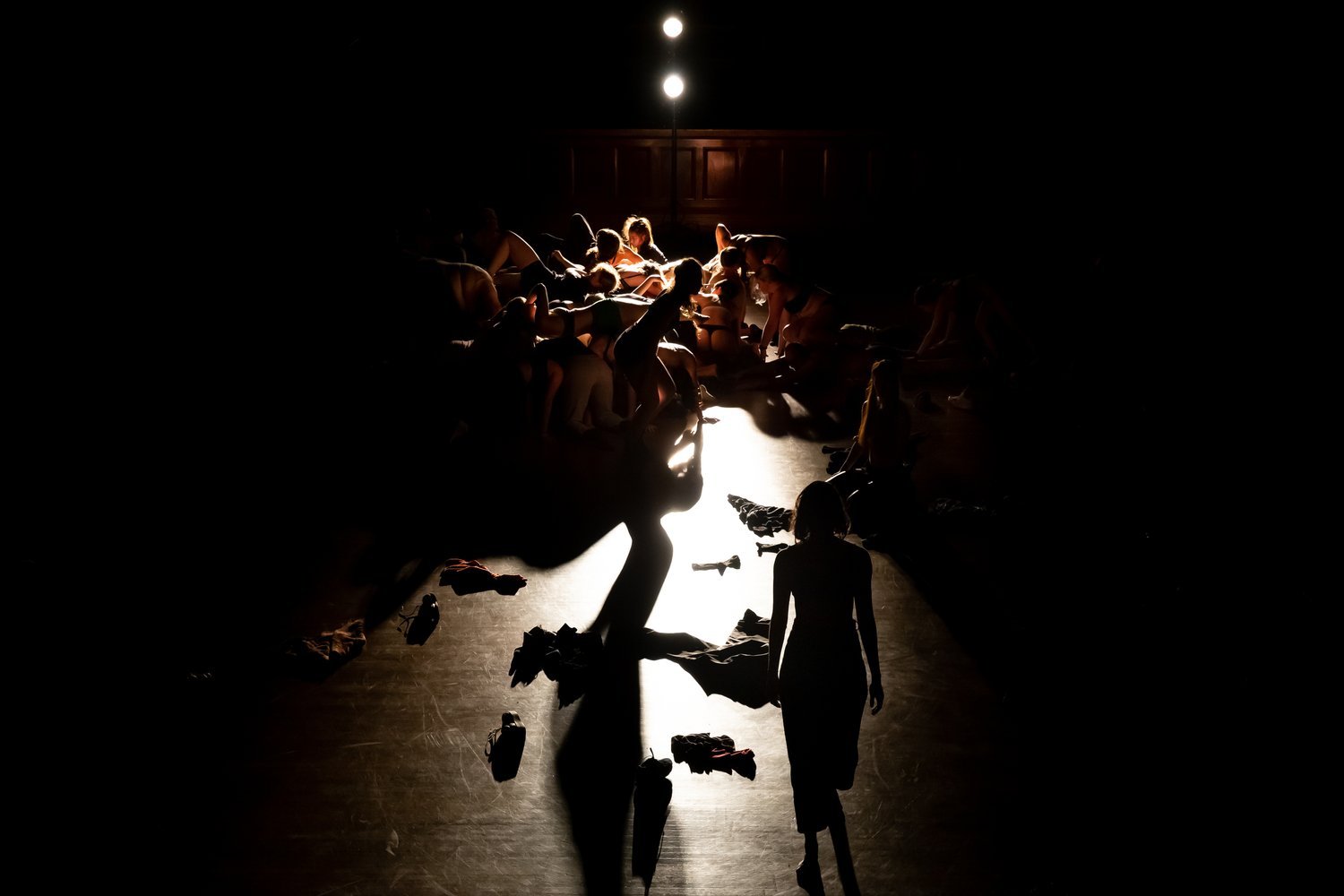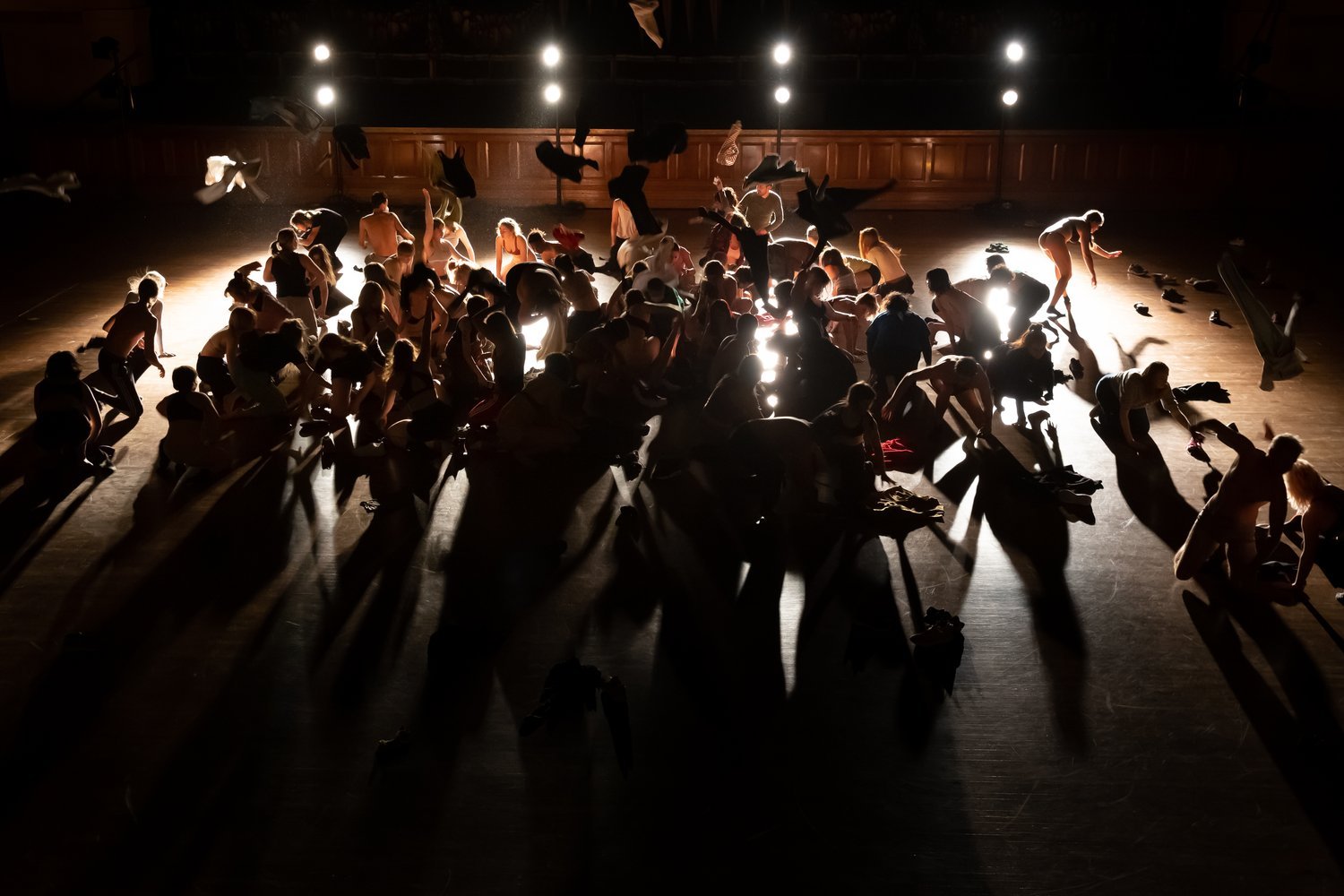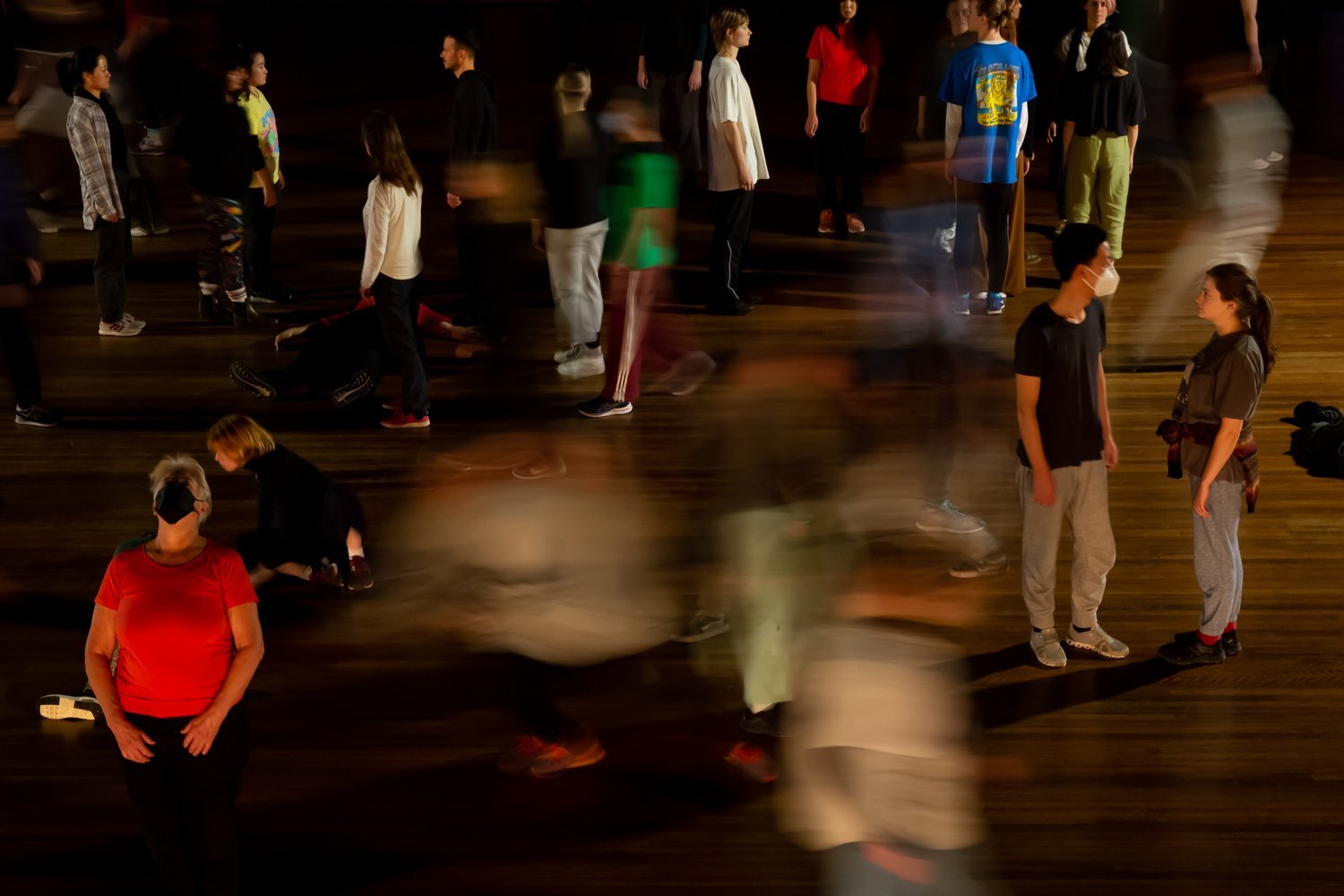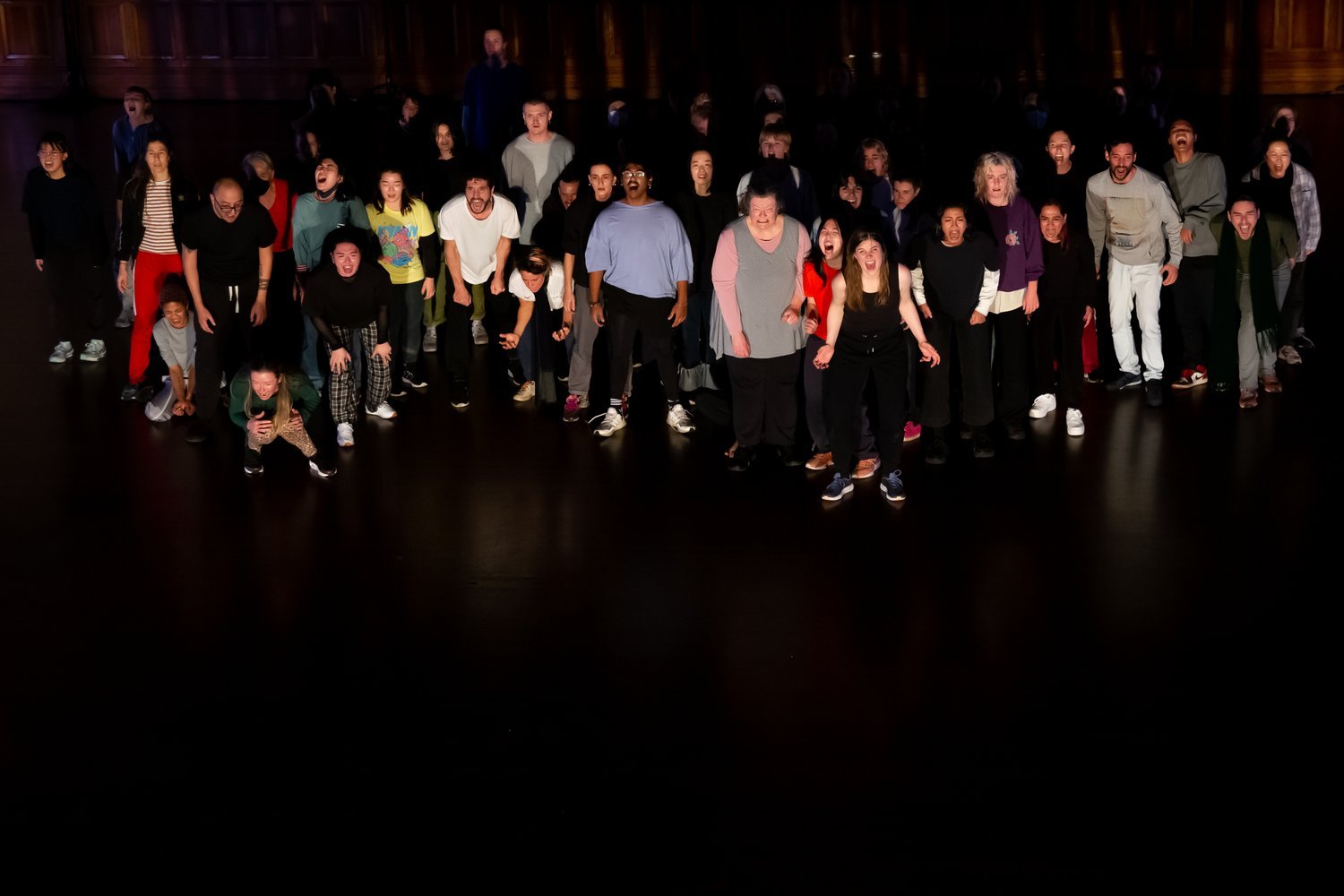Multitud - Rising 2022
“We have happened”
— Tamara Cubas
ABOUT
Seventy people, from different age groups and backgrounds, create a critical mass of collective action.
Footsteps speed up, laughter infects the crowd, clothes are shredded and limbs flail. Seventy people have reached a critical mass. Multitud, from Uruguayan choreographer Tamara Cubas, examines the power that lies within bodies, and what happens when they collide.
Throughout her work, Cubas has investigated the power of Latin American bodies—their history, memory and quest for decolonisation—often working with non-artistic participants and communities.
In the lead-up to the performance, Cubas will bring together 70 people from different age groups, backgrounds, communities and artistic practices. Together they devise the work’s sound, movement and energy. No two iterations of Multitud are the same, but each shows the universal power of collective action.
CREATORS
ARTISTIC TEAM
Choreography: Tamara Cubas
Sound: Francisco Lapetina
Lighting: Leticia Martínez
Technical Production: Leticia Skrycky
Production on tour: Alicia Laguna
Production and international distribution: Julia Asperska
Community Project: Kyall Shanks
Multitud Melbourne Performers
Zya, Brie, Kate, Gio, Alison, Dasha, Katie, Em, Ebony, Jonathan, Simone, Tess, Vivianne, Jaquline, Pip, Gion, Ivan, Nina, Nikki, Sarah, Sam, Stacy, Spoon, Tilly, CJ, Zoe, Mara, Paolo, Mia, Shinjita, Blinky, Takashi and other 38 memebers.
CREDITS
Kyall Shanks (Last photo above + Thumbnail photo)
Michelle Li (All other photos above)
@mmiicchheellllllee
@rising.melbourne
PRODUCTION HISTORY
11 - 12 June 2022
Melbourne Town Hall
Melbourne Australia
Profile - Tamara Cubas
Tamara Cubas is an award winning artist who lives and works in her home country of Uruguay. In her stage practices, Cubas has developed two lines of research—one that delves into the performative body in a constant search for the autonomy of the body based on her own concepts. In this line she investigates the power of Latin American bodies endowed with memories, history and particular experiences and their constant search for decolonization. The second line refers to the Other, where she develops projects with non-artistic populations and communities. In this path the recurring themes are history, the homeland, power, the political, interpersonal relationships, heterogeneity and dissent. Many of these themes are explored in Mutlitud.
Reflection #1 by Takashi Takiguchi - During the rehearsal
At the time us being cautious anything to do with close proximity physically, emotionally, psychologically and spiritually, the process has given me to see the world within the stage on a 70 people scale. It is simple yet complicated.
There are people in this Multitud, positioning themselves at front as a flagship, with content followers behind them, surrounded by quiet yet critical observers, with a hint of restless airy nomads around, and anything in between, while many strategic & technical conversations happening behind the scene. This is the world we live in.
There are many gaps between concepts and reality to be 'available' to create a 'connection' with others - even if you try to avoid such a connection with other 69 people, it inevitably creates another quality of connection in it. In this performance, whatever connection you have with others has to be shown honestly as it arises within choreographic movement scores, but how?
Confusion and frustration arise trying to hold on to something - something rational, something explainable, something that makes us feel that 'we know what we are doing. But in the end, such effort trying to 'understand' is the major element to hindering the process and the performance - not surprisingly, though, we need to make such (seemingly toxic, excessive and sometimes egoistic) effort within ourselves first and do a critical reflection, so that we can start our journey to find what's there on the other side. It's all relative, it is dualistic, yet just one side of the coin. It is such a resemblance to life.
Here are some quotes from the artistic director, Tamara Cubas during the rehearsal time
> 'the performance doesn't matter, but we have to do it to justify the process'.
> 'how to keep the tension, not conflict, depends each one of us as a group. Tension and conflict are two different things. We don't need conflict'
> 'not so interested in one person, more interested in one person interacting with the others in a specific temporal moment'
> 'this work is not about composition, not about movement, it is about specificity.
> If you lost in the middle of score, don't pretend. Stop what you are doing, and remember what desire + decision you have had/made, and start again (or it may not start again for ever).
> 'how can we walk like 'pedestrian' or 'neutral' in this piece (as we use in contemporary dance). We walk as we walk in a group'
> 'I don't know'..
> 'don't react, you act on your decision and desire'.
> 'how do we actualise the disobedience through this work (and for what?) - make your body available' to listen
> 'look at this space. it won't need us!'
> 'if you cannot shout (one of the scores in the performance), I can give you many reasons so you can shout.
(13/6/2022)
Reflection #2 by Takashi Takiguchi - Post Performance
Through this 10 day experimental, participatory once-in-a-lifetime journey with other 70 odd people, I wondered how much information and social context I would need to approach new persons/strangers. And how much I ‘see’ that information, rather than seeing the persons in front of me. As a group of strangers, we touched, tangled with, put our heads each others' crotch, fell onto each other BEFORE getting to know each other's names, backgrounds, and body conditions.
To feel, create and sense connections, I talked, not talked, smiled at, signaled, and shared the body vibrations through the space – it was challenging and awakening for me. I also observed that it is a different wavelength in the group dynamics/connection from that of Japan – it is cultural. However, I assume Tamara was talking about the humanity's connection before cultural beings.
I came to the realization that I had been a more egoistic, self-centered person than I think I would be. This is calm and valuable self-realization at this point in my life. Yet, it was still shocking, it was a really guts-churning experience.
The connections that Tamara was talking about are complex and simple as it is our body and life - we are born and die. The pain that she was talking about is hard to grasp at the time – yet I get some sense from what she said – don’t be a victim. I have victimized myself so much as a gay, migrant, ESL etc, and this would be an interesting area to look at from another philosophy of her 'tension vs conflict'. I will attempt to see those as tension, but not conflict within myself or with the others. How can I be on the balanced verge, I don't know, but I can distinguish those two now.
My observation was that she didn’t say much throughout, but kept giving us some fundamental directions. I feel like I got some wisdom from her and all members in my own interpretations. In some ways, all her words were some sort of spells for me and it created magic, however, it’s not that she has a stick of magic wand, not any specific person has it. It was created by this mass group of strangers, now friends, and we went through our spiritual rite of passage at this point of individual life as a group. She was a special yet necessary facilitator sent to us from Uruguay at this time.
What an even it was – it was like a dream, and it was like a nightmare or somewhere in between, but our buries remain as a sign of 'it actually happened'. It was indeed painful and celebrating.
Literally, “we have happened”, as she said.

